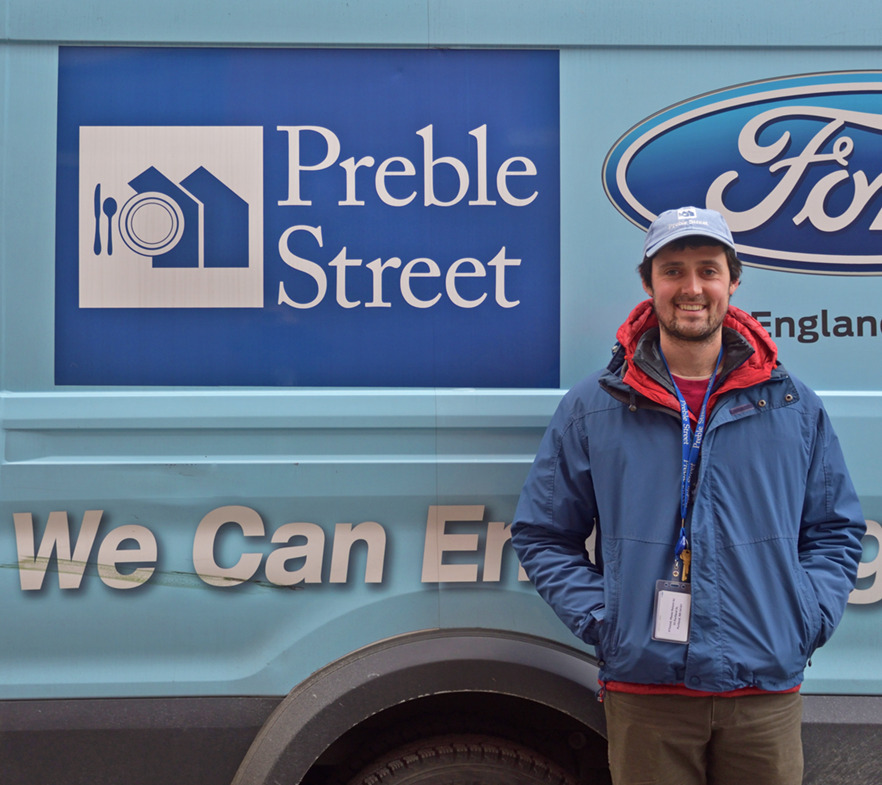“I’m so thankful you can stand in as their family when we can’t.”
— Parent of a person experiencing unsheltered homelessness and mental health disorders
Unsheltered homelessness is on the rise due to a shortage of shelter beds, lack of affordable housing, and insufficient resources for people with mental health and substance use disorders. In 2022, the Preble Street Street Outreach Collaborative (SOC) distributed 48,599 meals — which were created at the Preble Street Food Security Hub — and provided casework services to 515 individuals.
For many reasons, people experiencing homelessness can become disconnected from their families, friends, and communities. Preble Street caseworkers build trusting relationships with clients and step in to provide a support system. Every day of the year, SOC staff visit locations around Portland to provide food, clothing, and other basic needs to people living outside. They use these opportunities of connection to work alongside clients and help them reach their goals of shelter, housing, recovery, or employment.
People who are unsheltered frequently require numerous resources from emergency responders including support from the police and medical teams. And winter’s freezing temperatures and exposure to the elements can lead to severe frostbite. In one recent case, the SOC team was able to connect someone living in the woods to medical services, casework, and a bed at Elena’s Way.
Since the SOC launched in July 2020, they have not missed a day of outreach. To better support clients, the team collaborates with staff from numerous Preble Street programs and local community partners, including:
- Church of Safe Injection
- Grace Street Ministry
- Portland Parks & Recreation Department
- Portland Public Health Department
- Preble Street Rapid Rehousing Services, Veterans Housing Services, Health Services, Teen Services, and Advocacy team
- The Opportunity Alliance’s Project for Assistance in Transition from Homelessness (PATH)
- WEX, Inc. (a group of volunteers here have been providing a weekly laundry service to unsheltered clients!)
When staff from these programs and agencies join SOC in their outreach, client connections are made in the moment, resulting in quicker and more effective entry to services for people who need them.
The SOC’s community partnerships also cultivate collaboration and communication between organizations, building and strengthening relationships across agencies. This keeps all members of the collaborative grounded in the shared purpose of serving clients in an effective and dignified way.
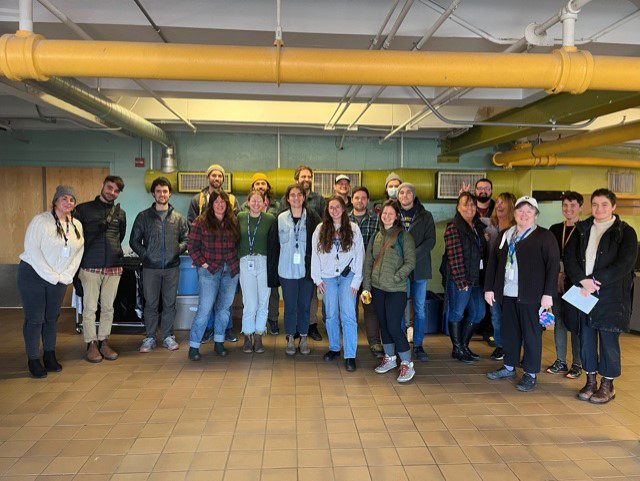
Keep Reading
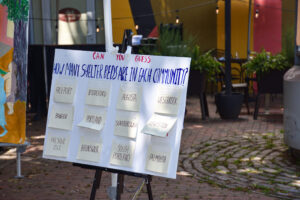
Maine’s 40 Emergency Shelter Providers are thankful for one-time funding to support shelter operations
Maine’s emergency shelter providers applaud the passage of LD 698, An Act to Sustain Emergency Homeless Shelters in Maine. Relying on a mix of private philanthropy and government funding, emergency shelters have faced rising costs, weathered the pandemic and inflation, and continued to meet the changing and complex needs of individuals and families who need
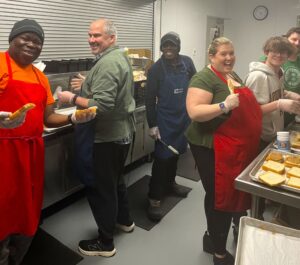
Fostering connection through food
Preble Street Food Programs is committed to providing the most nutritious, delicious, and balanced meals possible for people struggling with food insecurity in Maine. While recent updates to the Preble Street Food Security Hub have made this easier, there are still unique challenges. We rely on donations, meaning we often don’t know what ingredients we
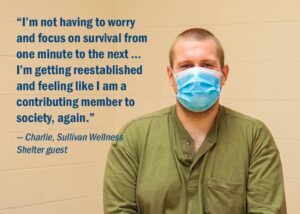
Five Years Later: How Preble Street’s Response to COVID-19 Shaped Its Future
During our 50 years in operation, Preble Street has had to adapt to changing needs and a shifting landscape many times. Never was this truer than in the days, months, and years that followed March 16, 2020. Five years ago this month, while the world was urged to stay home, a question loomed over staff
